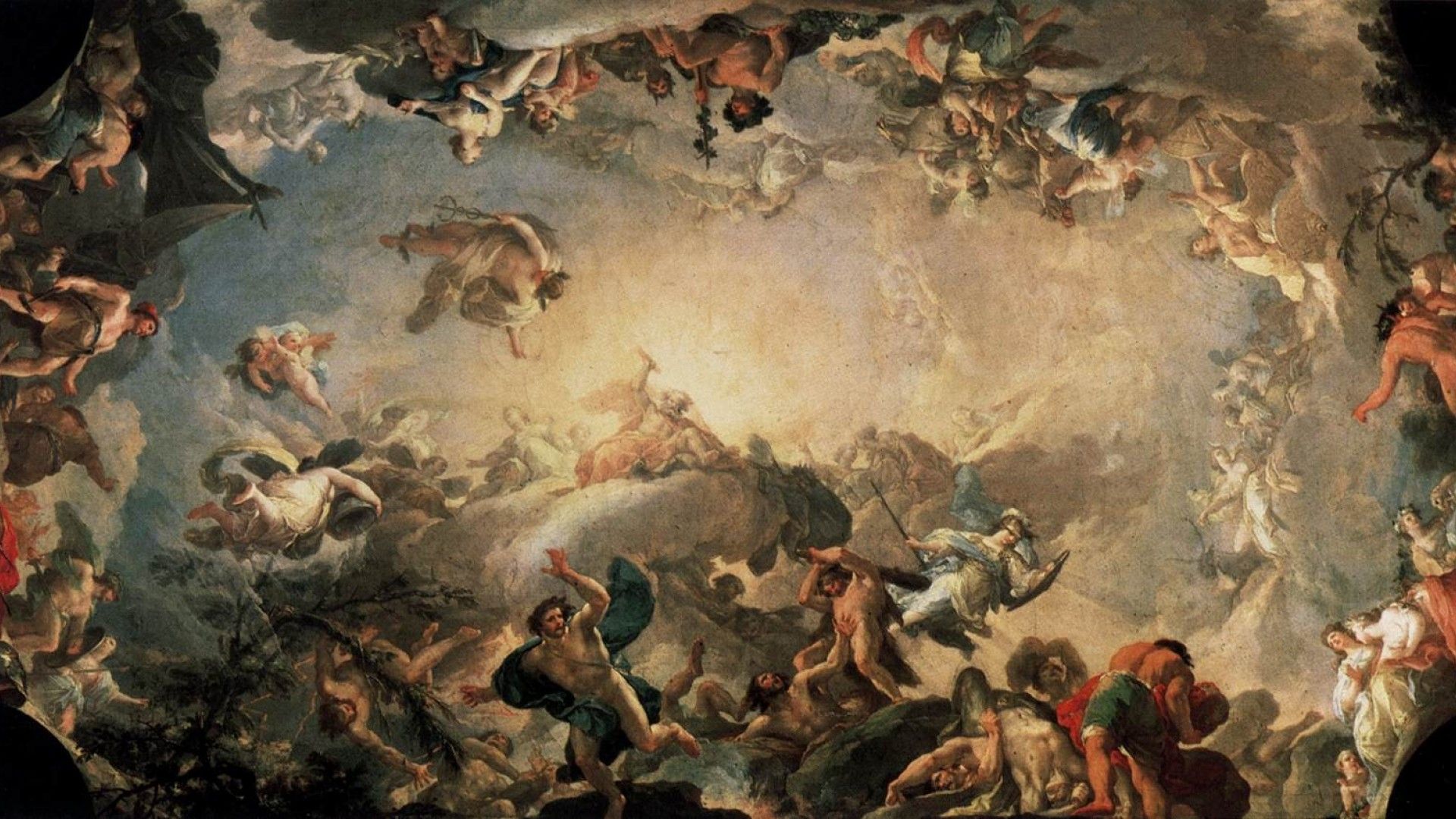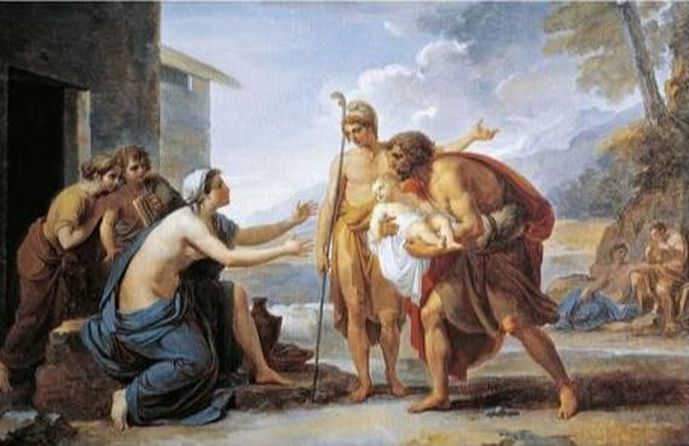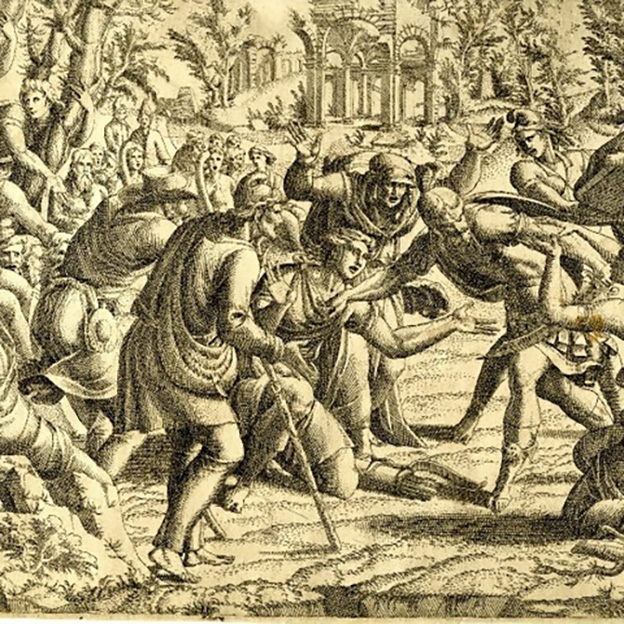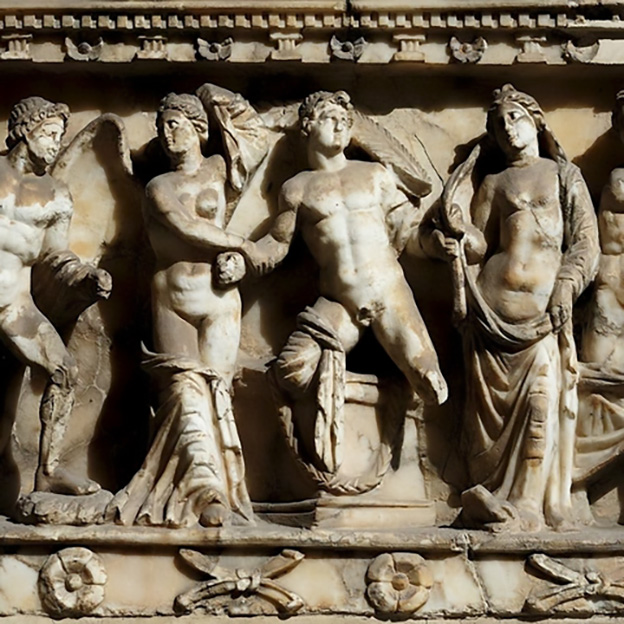
AGELAUS OF TROY

The name of Agelaus is a common one in Greek mythology, but one of these men named Agelaus played a role, although unwittingly, in the destruction of Troy.
AGELAUS THE HERDSMAN
Agelaus of Troy was a servant of King Priam in Greek mythology; some call him a common herdsman, whilst others give him the title of chief herdsman of the Trojan king.
THE PROPHECY ABOUT PARIS
Agelaus was in the employment of King Priam at the time when Hecabe, King Priam’s second wife became pregnant with a son.
When Hecabe started to have dreams about a burning torch setting fire to the city of Troy, this was interpreted by the seer Aesacus, that the son to be born to Priam and Hecabe was to bring the destruction to the city of Troy. Thus it was determined that that when Hecabe gave birth the son was to be killed.
Hecabe of course gave birth to a son, but neither Hecabe nor Priam could kill their son, and so the task was given to Agelaus instead.
AGELAUS AND THE ABANDONMENT OF PARIS
Now Agelaus had no more gumption than Priam or Hecabe to take a weapon to the new-born boy, and so instead determined instead to leave the son of Priam exposed. Exposure was a common method in Greek mythology of killing, or attempting to kill children, for it was thought that if the child died it was the will of the gods, and hence when they survived it was also the will of the gods.
Thus it was that Agelaus left the new-born upon Mount Ida.

AGELAUS RAISES PARIS
Agelaus would return to the spot where he had abandoned the boy after a number of days; some say it was 5 days and some say 9 days. Of course, the boy had survived being exposed, for it was said he had been suckled by a she-bear.
Determining that it was the will of the gods that the boy should survive, Agelaus took the baby to his own home, to raise as his own. Though fearful of the reaction of Priam, Agelaus told his master that the boy was dead.
Some tell of how it was Agelaus who gave the boy his name, Paris, and gave him a second name also of Alexander.
Agelaus would raise Paris as his own son, with Paris growing up as a herdsman, like his “father”, defending the sheep and cattle of King Priam from man and beast.
Agelaus, having rescued Paris, disappears from the tales of Greek mythology, but Paris of course is central to the destruction of Troy, just as Aesacus had foretold.
THE OTHER AGELAUS'
Agelaus or Agelaos (Ancient Greek: Ἀγέλαος) is, in Greek mythology, the name of various individuals.
Agelaus, or Agelaos, son of Damastor was a suitor of Penelope, killed by Odysseus.
Agelaus, a common herdsman (or slave of Priam) who saved the life of the Trojan prince Paris, exposed as an infant on Mount Ida, owing to a prophecy that he would be the reason for the destruction of Troy, and brought him up as his own son.
Agelaus, son of Maion. He was a Trojan warrior and killed, during the Trojan War, by Ajax.
Agelaus of Miletus, son of Hippasus. He fought against the Greeks as part of contingent of Nastes in the Trojan War and was killed by Meges.
Agelaus, son of Phradraon, and a Trojan warrior. He was killed during the war by Diomedes.
Agelaus, son of Evanor, and one of the attendants of Acamas during the Trojan War.
Agelaus, a Greek warrior slain by Hector during the Trojan War.
Agelaus, son of Heracles and Omphale, and ancestor of Croesus. In other sources this son is instead called Lamus.
Agelaus, son of Temenus and descendant of Heracles. Agelaus, along with his brothers (Eurypylus and Callias), hired men to kill his father, since he gave his favour to their sister Hyrnetho and her husband Deiphontes. When this was discovered, the people gave the throne to Deiphontes and Hyrnetho.
Agelaus, son of Oeneus and Althaea. He was killed whilst battling the Curetes.
Agelaus, son of Stymphalus, king of Arcadia, and father of Phalanthus.
Agelaus, father of Antheus of Lyctus. He fought in the army of Dionysus during his campaigns in India.

Sources
Quintus Smyrnaeus, The Fall of Troy 3.247
Quintus Smyrnaeus, The Fall of Troy 1.300
Homer, Iliad 8.253
Quintus Smyrnaeus, The Fall of Troy 4.365
Homer, Iliad 11.299
Pseudo-Apollodorus, Bibliotheca 2.7.8 (note: 228)
Pseudo-Apollodorus, Bibliotheca 2.8.5
Hesiod, Ehoiai Fragment 98 Evelyn-White = fr. 25 Merkelbach–West
"Greek Legends and Myths"
Our Mobile Application
Check out Our Mobile Application "Ancient Greece Reloaded"


